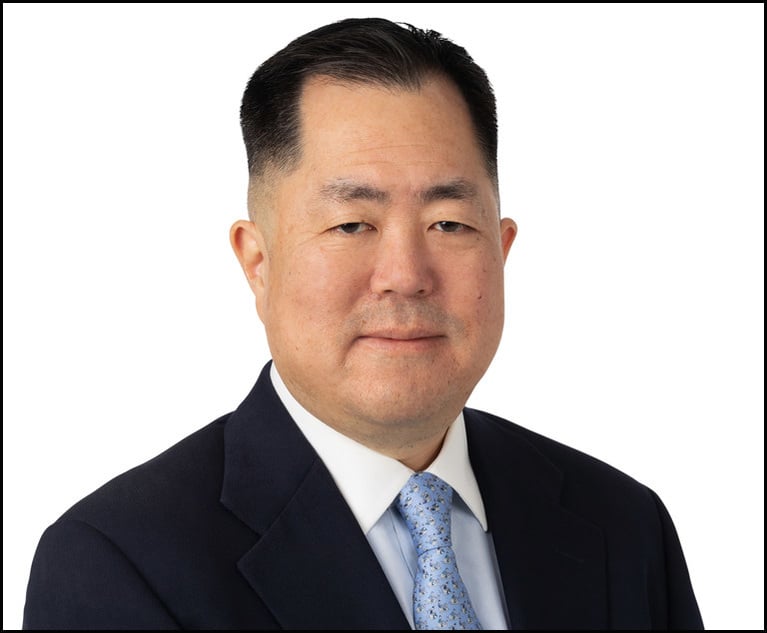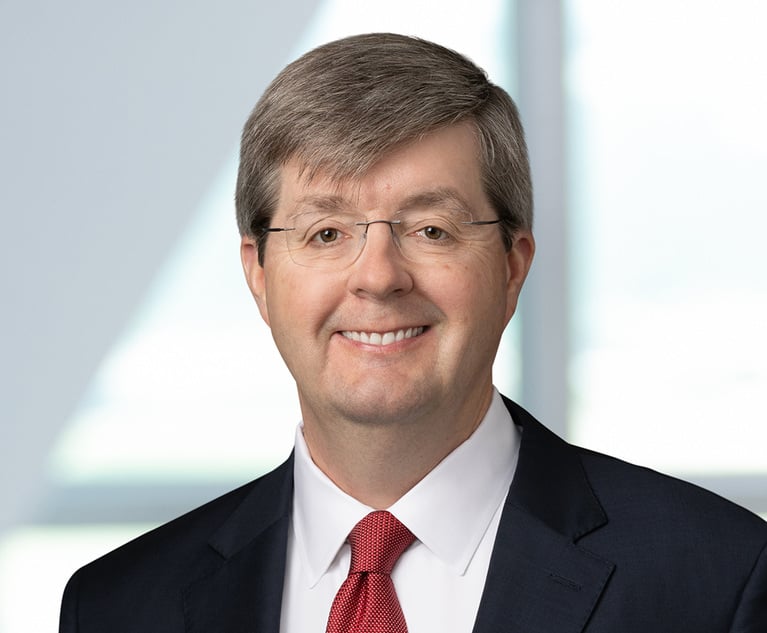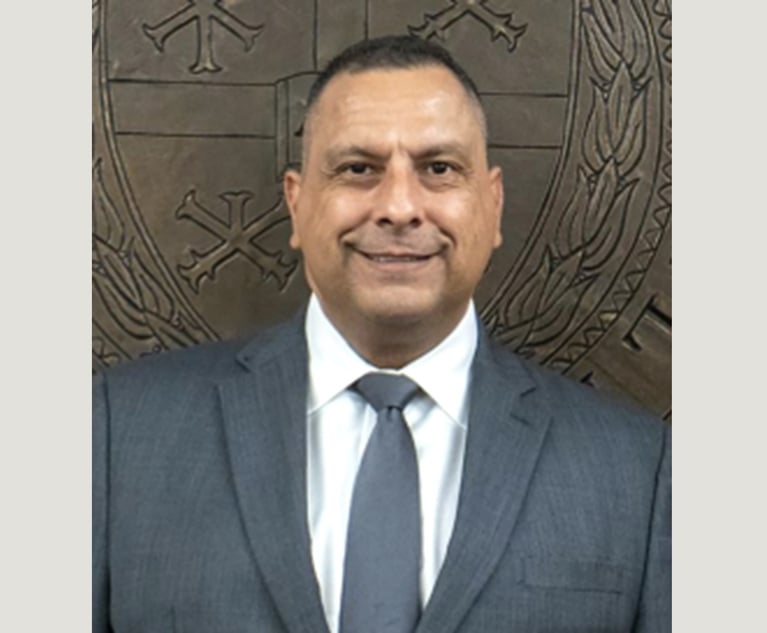 Moscow, Russia. Photo: Shutterstock
Moscow, Russia. Photo: ShutterstockAmid Sanctions and Defections, International Law Firms Hang On in Moscow
A year after a Moscow rainmaker set out from Akin Gump to start his own firm, international firms are facing challenges but mainly sticking tight.
September 16, 2019 at 05:00 AM
9 minute read
Moscow's tight-knit elite legal community got a jolt last September, when a high-billing team set out from Akin Gump Strauss Hauer & Feld to start their own boutique. U.S. sanctions on Russia had helped prompt rainmaker Ilya Rybalkin and his colleague Suren Gortsunyan to launch Rybalkin, Gortsunyan & Partners, courting major clients that had traditionally stuck with international law firms for critical matters tied to the country.
But even as the geopolitical environment remains unsettled, with the U.S. imposing additional sanctions in August, international shops are finding ways to hang on in the country. And while some up-and-coming Russian lawyers have found new homes, no one has yet attempted to replicate the Rybalkin Gortsunyan model.
Rybalkin, a disputes specialist who reportedly brought in $20 million in his final full year at Akin Gump, and Gortsunyan, who does corporate work, reported a strong first year after founding the firm with 11 other attorneys. The firm now boasts 22 fee earners, and according to Rybalkin, the firm has been entrusted to handle disputed with a combined value of $4.3 billion.
"We maintain our focus," he said. "From scratch, we decided to build up our international disputes capabilities, working for oligarchs and Russian majors."
Work continues on behalf of Rybalkin's longtime clients conglomerate Renova, controlled by oligarch Viktor Vekselberg and Russian oil and gas company Tatneft.
The firm has also ventured into Russian bankruptcy and disputes work that's complementary to international disputes. And it's drawing sanctions and compliance mandates, while the corporate practice has advised on two major transactions in the mining sector.
"What we're proud of is that we've been able to maintain the same caliber of clients and the same level of complexity of the work we have done historically in the new firm," Gortsunyan said.
The growing head count also demonstrates that the firm has established itself as an appealing place to work for rising attorneys and other professionals, including a former Dechert associate who handles domestic disputes and a senior adviser who previously advised oil and gas companies as the leader of Ernst & Young's international tax practice in Moscow.
And it puts them right around the 20 attorney "threshold" that several observers of the Russian market have said is necessary to compete in the country. Of the roughly 30 international firms with a presence in Moscow, 14 currently have 20 or more attorneys.
|No Exits
Even after successive rounds of sanctions—following the invasion of Crimea in 2014; then in April 2018, over meddling in the 2016 U.S. elections; and then this August, responding to the nerve agent attack last year against a former Russian spy in Britain—no international firms have exited Russia since Orrick, Herrington & Sutcliffe left in early 2018.
That's not to say that it's been easy going.
"It's a challenging market," said Sebastian Rice, partner-in-charge of Akin Gump's London office, who formerly headed the firm's Moscow office. His firm lists 17 attorneys affiliated with Moscow, with Rice and two others also tied to London.
"It never helps when a country is subject to sanctions, and it makes business more iffy," he added.
Rice said the firm's office, while on the small side, succeeds through its long-running ties to clients, having first opened in the country in 1994. And while sanctions have certainly kneecapped demand in certain areas, most prominently, international financing, work tied to compliance is flourishing.
"We have partners from Hong Kong to the Middle East to London to the U.S. advising as to Russia for sanctions issues for Russian and international clients," he said.
Sanctions work is also keeping overall demand steady for Hogan Lovells' Moscow office, said managing partner Oxana Balayan, where head count has also been stable with three partners and 45 fee earners.
"Overall our strategy has been to watch how things develop politically, keep the size that we have, and continue to focus on our strengths," she said, identifying litigation, mergers and acquisitions, and intellectual property work.
Baker McKenzie, the first Western law firm to arrive in Moscow in 1989, has also managed to keep its numbers even. With 113 partners and associates, according to the firm, it's among the largest international players in the market, alongside Dentons
According to Sergei Voitishkin, Moscow managing partner, that longevity means that the firm has been through crises before. It used the 1998 financial crisis to pick up substantial talent, and since then has succeeded in advancing young attorneys.
"We've been promoting people and enabling them to focus on areas that arouse interest," he said. "That has made us very stable and successful in the current tough market."
International firms, even those with long-running local experience, also continue to face competition from established Russian firms, which are widely considered to be increasing their capabilities.
"The quality of offerings at domestic firms is increasingly good," Rice said, adding the caveat that in areas like international trade, firms like Akin Gump aren't competing with local players.
Vassily Rudomino, the co-founding partner of one of those firms, 100-lawyer Alrud, sees the international firms that are staying afloat in the difficult environment as distinguished by a strong Russian client base and strong Russian partners.
Rudomino cited the high costs of keeping compliant with the growing roster of sanctions, which he estimated at as much as $7 million a year. Beyond that, he says that he's been fielding increasing inquiries from clients who are frustrated with the length of time it takes international firms to confirm whether or not they can take a matter.
"The final approval is not in Moscow but in the U.S., where the head of legal is sitting and verifying whether a new engagement is compliant from a sanctions point of view or not," he said.
Rudomino also sees an increasing number of attorneys looking to leave international firms, particularly the smaller ones.
"We see quite often now inquires from headhunters," he said. But attorneys used to working for top brands also find it difficult to move to Russian firms that lack the same historic prestige, even if they may be narrowing the gap. The majority of those leaving smaller international firms are either going in house or joining larger firms like Dentons and DLA Piper.
Meanwhile, Balayan at Hogan Lovells said that the example of Rybalkin Gortsunyan has actually illustrated the challenge that upstarts face.
"When it comes to sophisticated legal services of the type that Rybalkin is trying to promote, Russians are used to looking at international experts," she said. "It's difficult to sell just a Russian firm for that."
Balayan said that while the strategy of becoming the primary choice for large Russian corporations hasn't necessarily worked according to plan, the firm is seizing opportunities by servicing the clients of prestige players that are not in Russia.
Rybalkin did acknowledge this work. "New York and Russian firms told us that our expertise and quality of people is unique for the Russian firms," he said. "They are desperate to find lawyers in Russia that could be viewed as their peers in terms of experience, working ethics and morale."
And Balayan conceded there was a place for the new firm, naming it in the same sentence as Alrud. "I think Rybalkin will have their niche," she said.
|Regulatory Reforms?
Beyond market dynamics, there's another source of uncertainty for corporate lawyers in the country. Several years ago, the Russian Ministry of Justice first expressed interest in reforming the regulation of the legal profession.
Presently, only the roughly 75,000 "advokats" in the country—a designation comparable to the English "barrister"—are subject to regulatory authority. All other legal professionals are exempt.
Draft regulations were released in October 2017, and they included a provision—alarming to international firms—that would prohibit direct control of Russian firms by non-advocates, including foreigners. But resistance followed, and plans for change were put on hold.
According to Balayan, her firm and others played a key role in pushing back against any changes.
"International firms united their forces to explain how negatively it would affect Russian companies, and Russian companies supported that," she said.
But players in the market are at odds on what comes next. According to Balayan, there's "absolutely" no sign of the plans being revived. "Obviously, the government has other priorities at the moment."
However, Rudomino said that the regulation requiring action on the subject is still on the books. To forestall the prospect of any change, he said it would be necessary to amend the program approved by Prime Minister Dmitry Medvedev.
"They cannot just drop it," Rudomino said, adding that he expects to hear more by the end of 2019.
Voitishkin is on the same page, noting that at a legal forum this spring, officials from the Ministry of Justice said that reforms will go ahead and happen as planned. All that is necessary at this point, he said, is for the rule to be amended and then parliamentary action.
"We will have to become advocates," he said. "I expect that to happen close to the year end, to be honest."
|Read More
Sanctions Climate Forces High-Billing Russian Team to Leave Akin Gump
This content has been archived. It is available through our partners, LexisNexis® and Bloomberg Law.
To view this content, please continue to their sites.
Not a Lexis Subscriber?
Subscribe Now
Not a Bloomberg Law Subscriber?
Subscribe Now
NOT FOR REPRINT
© 2025 ALM Global, LLC, All Rights Reserved. Request academic re-use from www.copyright.com. All other uses, submit a request to [email protected]. For more information visit Asset & Logo Licensing.
You Might Like
View All
Husch Blackwell Hires Former Adobe Counsel to Oversee AI Advisory Offering
3 minute read
'Taking the Best' of Both Firms, Ballard Spahr and Lane Powell Officially Merge
6 minute read
Bracewell Adds Former Pioneer Natural Resources Lawyer to O&G, Energy Transition Practices
2 minute read
Trending Stories
Who Got The Work
Michael G. Bongiorno, Andrew Scott Dulberg and Elizabeth E. Driscoll from Wilmer Cutler Pickering Hale and Dorr have stepped in to represent Symbotic Inc., an A.I.-enabled technology platform that focuses on increasing supply chain efficiency, and other defendants in a pending shareholder derivative lawsuit. The case, filed Oct. 2 in Massachusetts District Court by the Brown Law Firm on behalf of Stephen Austen, accuses certain officers and directors of misleading investors in regard to Symbotic's potential for margin growth by failing to disclose that the company was not equipped to timely deploy its systems or manage expenses through project delays. The case, assigned to U.S. District Judge Nathaniel M. Gorton, is 1:24-cv-12522, Austen v. Cohen et al.
Who Got The Work
Edmund Polubinski and Marie Killmond of Davis Polk & Wardwell have entered appearances for data platform software development company MongoDB and other defendants in a pending shareholder derivative lawsuit. The action, filed Oct. 7 in New York Southern District Court by the Brown Law Firm, accuses the company's directors and/or officers of falsely expressing confidence in the company’s restructuring of its sales incentive plan and downplaying the severity of decreases in its upfront commitments. The case is 1:24-cv-07594, Roy v. Ittycheria et al.
Who Got The Work
Amy O. Bruchs and Kurt F. Ellison of Michael Best & Friedrich have entered appearances for Epic Systems Corp. in a pending employment discrimination lawsuit. The suit was filed Sept. 7 in Wisconsin Western District Court by Levine Eisberner LLC and Siri & Glimstad on behalf of a project manager who claims that he was wrongfully terminated after applying for a religious exemption to the defendant's COVID-19 vaccine mandate. The case, assigned to U.S. Magistrate Judge Anita Marie Boor, is 3:24-cv-00630, Secker, Nathan v. Epic Systems Corporation.
Who Got The Work
David X. Sullivan, Thomas J. Finn and Gregory A. Hall from McCarter & English have entered appearances for Sunrun Installation Services in a pending civil rights lawsuit. The complaint was filed Sept. 4 in Connecticut District Court by attorney Robert M. Berke on behalf of former employee George Edward Steins, who was arrested and charged with employing an unregistered home improvement salesperson. The complaint alleges that had Sunrun informed the Connecticut Department of Consumer Protection that the plaintiff's employment had ended in 2017 and that he no longer held Sunrun's home improvement contractor license, he would not have been hit with charges, which were dismissed in May 2024. The case, assigned to U.S. District Judge Jeffrey A. Meyer, is 3:24-cv-01423, Steins v. Sunrun, Inc. et al.
Who Got The Work
Greenberg Traurig shareholder Joshua L. Raskin has entered an appearance for boohoo.com UK Ltd. in a pending patent infringement lawsuit. The suit, filed Sept. 3 in Texas Eastern District Court by Rozier Hardt McDonough on behalf of Alto Dynamics, asserts five patents related to an online shopping platform. The case, assigned to U.S. District Judge Rodney Gilstrap, is 2:24-cv-00719, Alto Dynamics, LLC v. boohoo.com UK Limited.
Featured Firms
Law Offices of Gary Martin Hays & Associates, P.C.
(470) 294-1674
Law Offices of Mark E. Salomone
(857) 444-6468
Smith & Hassler
(713) 739-1250








